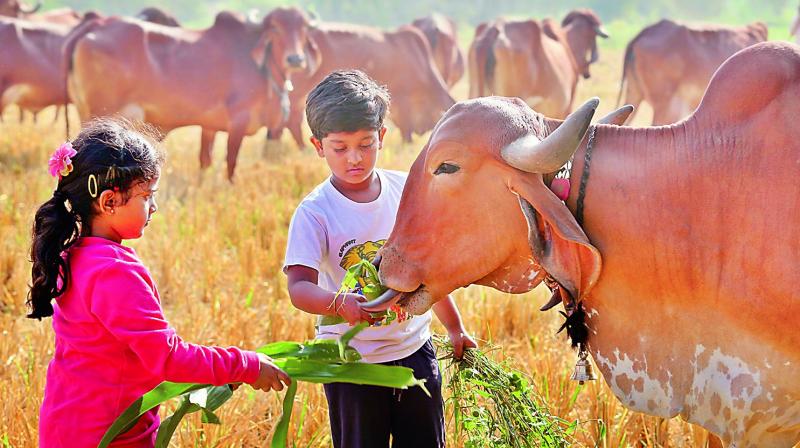In the Moo'd for organic milk
With the rising demand for organic milk, experts tell us what makes it so special.

With more people joining the sustainable movement, milk is one of the main foods people have been relying on to “go organic”. In the last few years, the number of organic dairy farms are on a rise. These produce and deliver pure, unadulterated milk straight from a cow or buffalo to your home within a couple of hours.
“The realisation about the synthetic products used for creating food and the hazards it can cause has led to people being more conscious about what they eat,” says Kotesh Mukkamala, who started Organics Dairy in 2006.
Kishore Indukuri from Sid’s Farm agrees, adding, “A lot of people do it for their kids. They want to give them the best — just like how they had when they were younger.”
“Over the years, the numbers of things added to foods have increased. That is the driving factor behind people going organic or natural, or even eating locally. Organic dairy farmers ensure that the cows are eating naturally grown fodder — free from pesticides and fertilisers,”says Kishore Indukuri from Sid’s farm. “Organic milk is procured from animals that are not treated with antibiotics and which have not had growth hormones injected,” says Kotesh.
Divya Reddy, who started the Klimom dairy farm in 2015, adds that their focus is to create a natural environment for the animals themselves to live in. She explains, “We want to create the same kind of ecosystem that was present earlier, where cows live with family. We’ve also discovered that the Indian cow is a social animal — it almost behaves like a human being! It’s happy when it is part of a family, and these things are extremely important even to the quality of the milk because there’s no stress involved.”
Kishore also says that the animals’ calves get to drink the milk first. “We make sure that there is absolutely nothing else added to milk. Not a drop of water is added, and it’s given to you exactly how we get it from the cow — after the calf drinks it, we take what is left.”
While the main challenges for such farms are ensuring that the quality of their milk isn’t compromised, whether it’s about growing enough fodder for the whole year or marketing the milk competitively, the farmers are sure that in the long run, it will pay off, both for your wallet and for your health.
“Customers are showing great interest in organic milk and we are not able to cope with the demand. It’s not easy to produce organic milk and we don’t want to cut corners to scale very fast, and compromise on quality,” says Kotesh.

